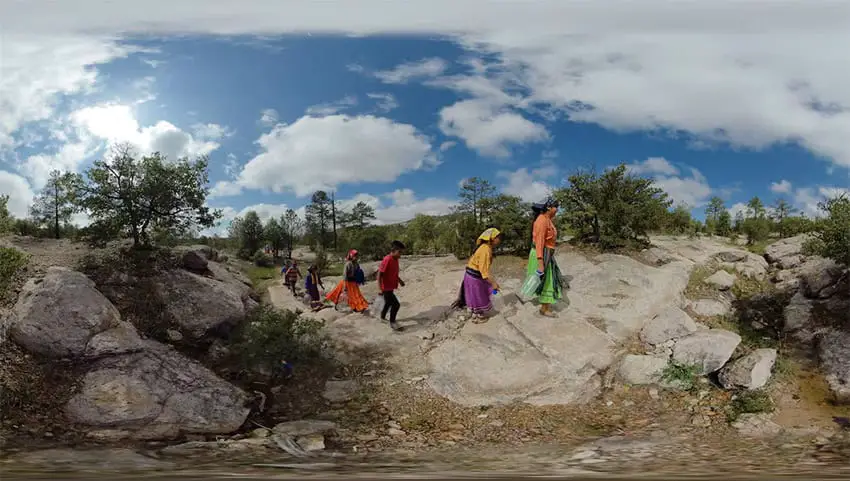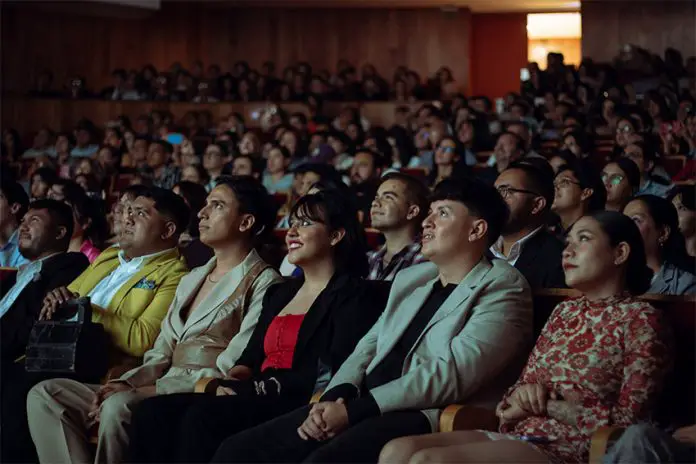The Guanajuato International Film Festival (GIFF) is leaping into the future of cinema and diving into Mexico’s movie-making past during its 11-day run in León, San Miguel de Allende and Irapuato.
The 27th edition of the acclaimed festival will run from July 19 (today) through July 21 in León, followed by San Miguel de Allende from July 22 to 25 and Irapuato from July 26 to 29.
This year’s lineup includes 192 films, of which 157 will be in competition and 16 will be world premieres. Mexican shorts and feature-length films will have a major presence on the program, with 34 of them making their national debuts on the pantalla grande, the big screen.
One of the international films of note is “Black Dog,” a Chinese drama that two months ago won Un Certain Regard, the second-most prestigious award at the Cannes Film Festival. It’s about an ex-con forging a relationship with a stray dog in advance of the 2008 Summer Olympics in Beijing.
Another film to look for is “Explanation for Everything,” a Hungarian film about a male student trying to study for exams while falling hopelessly in love with a girl. It won best film at last year’s Venice Film Festival in the category for up-and-coming films and filmmakers.
“Brief History of the Family,” an official selection at this year’s Sundance Film Festival, is about a middle-class Chinese family trying to cope with problems. The film was made in China — the guest country of honor at this year’s GIFF.

In addition to presenting films from 49 countries, this year’s Guanajuato International Film Festival will look to the future of the industry with an exhibition on virtual reality that includes 16 “immersive” films.
Two of those films are Mexican productions, including “GAWI,” which means “Mother Earth” in Tarahumara, an Indigenous Uto-Aztecan language. According to the festival program, the 10-minute dreamlike film “is an immersive virtual reality experience co-created with the Rarámuri community in northern Mexico [that offers] an intimate experience of how a Rarámuri state of mind and soul can feel.”
Another VR offering, “Flotando con los espíritus” (“Floating with Spirits”), is a 31-minute film in which viewers will experience the ancestral knowledge and mystical cosmogony that flows into two Indigenous sisters in the mountains of Oaxaca as they prepare for Day of the Dead.
“Rethinking and re-envisioning a film in 360 [degrees] takes you out of your comfort zone as a filmmaker,” said Sarah Hoch, the director and co-founder of the festival that she started alongside husband Ernesto Herrera in 1998. “It opens our minds, our language, the possibilities of telling stories and enriches our creative experience.”

The festival in recent years has also taken to creating workshop and panel discussions around a certain aspect of technology. Last year, it was artificial intelligence; this year it is quantum computing — which combines computer science, physics and mathematics to solve complex problems in no time at all.
GIFF will examine quantum computing’s growing impact on filmmaking, said Hoch, who was born in Kansas but has permanently resided in San Miguel de Allende since 1972.
Looking backward in addition to ahead, the festival will honor several emblematic figures from the history of Mexican cinematography: director Arturo Ripstein, actors Joaquín Cosío, Adriana Paz and Claudia Ramírez, and screenwriter Marina Stavenhagen.
Ripstein, 80, who is of Polish Jewish descent, is often called the “Godfather of independent Mexican cinema.” The Mexico City native and his films have won nine Ariel Awards, including five for best picture and two for best director.
If you have the streaming service Kanopy, check out Ripstein’s amazing “Tiempo de Morir” (“Time to Die”), winner of the best picture Ariel in 1967 (English subtitles are included).
Five of his other films will be shown in the festival: “El castillo de la puro” from 1973, “La viuda negra” from 1977, the director’s cut of “Profundo carmesí” from 1996, “La calle de la amargura” from 2015 and “El diablo entre las piernas” from 2019.
All GIFF screenings are free, but you’d best arrive early. For more details, visit the festival website.
